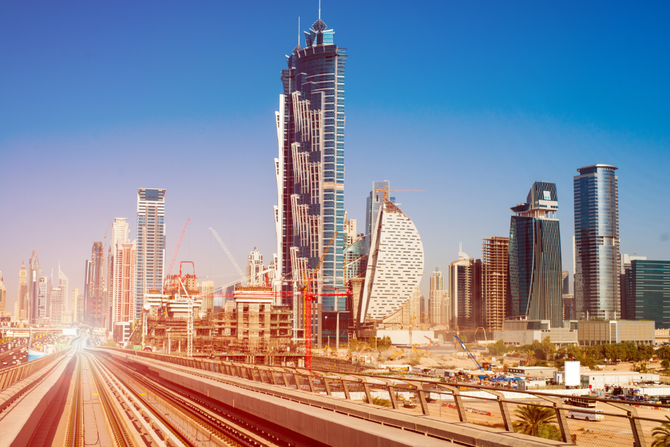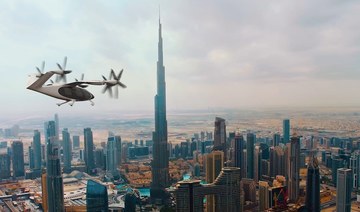These are exciting times for startups in the Middle East as venture capital firms and tech investors are increasingly seeking out novel ideas that can be turned into reality. To coincide with World Creativity and Innovation Day on April 21, Arab News has compiled a definitive list of the top 15 startups in the region.
From the UAE to Egypt to Saudi Arabia, a new business landscape is emerging in the Middle East’s startup ecosystem that is changing in the face of entrepreneurship in the region. There are many interesting startup developments that provide home-grown tech solutions as entrepreneurs mix successful startup ideas from other parts of the world with the unique religious and cultural values of the region.
Given that there are tens of new startups launching every day and grabbing the attention and resources of investors, it was no easy task to filter out the top 15 startups. However, we zeroed in on startups that have not only managed to successfully turn things around for their business but have also made a difference in the lives of consumers, thanks to their innovative solutions.
Arab News’s list of 15 most innovative startups includes a new wave of startups that have raised millions of dollars of funding and covers a wide range of sectors including finance, delivery, health, transport and the media. By all accounts, 2021 was a record-breaking year for startups in the region and it seems very likely that things will only accelerate in 2022, powered by many of the startups that have been listed below.
Playbook
(Social media platform for professional women)
Founder: Wafa Al-Obaidat
Funding: $700,000
Investors: Sanabil Investments, 500 Global, Faith Capital, WomenSpark and Strategic Angel Investors
The online social media platform, Playbook, designed specifically for female professionals and entrepreneurs, currently has 12,000 members. It is an edutainment platform that helps women with their career progression and mentorship from female leaders across different industries and walks of life.
The platform leverages shared experiences to prepare women to grow through masterclasses in both English and Arabic. It allows users to create customized profiles, highlighting their skills and professional goals. They can take multiple classes based on their interests, network with other members, find solutions to problems via crowdsourcing and track their progress through games.
Nitros
(Online shipping and logistics management)
Founder: Awsim Asmi
Funding: $300,000
Investors: 500 Global and OQM Investments
Nitros is a shipping and logistics solution provider for online sellers that offers technical integration from e-store to customer delivery, allowing retailers to compare shipping rates, create labels, generate international customs documents, track shipments and transfer money.
It is the Gulf equivalent of online shipping business Shippo in the US, SendCloud in Europe and ShipRocket in India, which allow small merchants to automate their shipping operations.
ekar
(Personal mobility systems)
Founder: Vilhelm Hedberg
Funding: $34 million
Investors: Polymath Ventures and others
ekar claims to be the Middle East's first and largest self-drive mobility platform, providing users on-demand access to a network of thousands of carshare and subscription leasing vehicles within its 'Self-Drive Super App', in addition to contactless peer-to-peer car share which just launched in Saudi Arabia.
The startup operates across seven cities, with a fleet of 2,300 vehicles and 250,000 users in Saudi Arabia and the UAE. It ventured into Thailand in January 2022 and plans to expand into Malaysia, Turkey and Egypt later this year.
Sarwa
(Fintech platform)
Founders: Mark Chahwan, Nadine Mezher, Jad Sayegh
Funding: $25 million
Investors: Mubadala Investment Co., 500 Startups, Kuwait Projects Co., Shorooq Partners, ADQ, Middle East Venture Partners
Sarwa is a fintech startup with over 50,000 registered users. The trading platform offers a hybrid model of AI-backed smart trading and on-demand customer support. They recently launched Sarwa Trade, a zero-commission platform that lets customers trade more than 4,000 publicly traded stocks and ETFs on leading US exchanges.
AlTibbi
(AI-backed healthcare company)
Founder: Jalil Allabadi
Funding: $50 million
Investors: Foundation Holdings, Hikma Ventures, Global Ventures and DASH Ventures.
Altibbi is a digital health platform in the Middle East and North Africa. The platform aims to present reliable, up-to-date and simplified medical information to users in the region. What started as an Arabic version of WebMD has grown into a subscription-based telehealth company with 2.4 million consultations per year, nearly ten times the in-person visits to the hospital visits. They are expanding heavily in Saudi.
Tamara
(Fintech)
Founders: Abdulmajeed Alsukhan, Turki Bin Zarah, Abdulmohsen Albabtain
Funding: $116 million
Investor: Checkout.com
Saudi startup Tamara raised $116 million in seven months of operation. The ‘buy now, pay later’ company offers online and in-store customers the ability to pay in installments or split payments in Saudi Arabia, the UAE and Kuwait. Collaborating with over 2,000 merchants, Tamara has more than two million shoppers on its platform, with transactions totaling nearly $266 million last year alone.
CAFU
(Oil & gas)
Founder: Rashid Al Ghurair
CAFU is one of the leading fuel delivery and vehicle services platforms. It offers fuel at the same price as charged by petrol stations. They specialize in on-time delivery and offer the service overnight. The platform uses fuel that is certified by Emirates Authority for Standardization and Metrology. In other words, it’s of the same quality as the one that you use to fill up your vehicle from ENOC, Eppco, Emarat and other petrol stations across the stations in the UAE.
NOMADD
(Desert solar technology)
Founders: Cliff Barrett and Georg Eitelhuber
Funding: $7.8 million
Investors: KAUST and CEPCO
The NOMADD is a fully autonomous waterless robotic cleaning solution designed, developed and tested in Saudi Arabia’s severe desert conditions. It has raised a total of $7.8 million in funding over 4 rounds.
SWVL
(Transportation)
Founder: Mostafa Kandil
Funding: $175 million
SWVL is an Egypt-based transportation service that operates on a global scale. It is currently a unicorn and listed on US Nasdaq. This bus-hailing service enables users to make intra-state journeys by booking seats on buses running a fixed route.
Pylon
(Sustainability)
Founders: Ahmed Ashour and Omar Radi
Funding: $19 million
Investors: Y-Combinator and others
Pylon is a water and electricity management infrastructure startup that is backed by leading VC firm Y-Combinator. The company caters to all the utility’s needs in the region by providing a comprehensive platform that addresses all aspects of the utility distribution process
Rology
(Health tech)
Founders: Amr Abodraia, Moaz Hossam, Bassam Khallaf, Mahmoud elDefrawy
Funding: $1 million
The platform was launched to plug the lack of radiologists and high latency in medical reports by enhancing scan image quality and matching cases from hospitals and radiology centers according to sub-specialization and expertise. It delivers reports for cold cases within 12 hours and emergency cases in just 60 minutes. The platform is fully equipped to supply hospitals with unique solutions across a diverse spectrum of subspecialties including breast imaging, cardiovascular radiology, chest radiology, gastrointestinal radiology, musculoskeletal radiology and more.
Dawarha
(Sustainability)
Founder: Mohamed Kabil
Funding: $1.9 million
Dawarha develops and manufactures reverse vending machines that use artificial intelligence to reward consumers for depositing empty single-use plastic bottles or cans. The startup also offers an app that directs users to the nearest RVM.
Red Sea Farms
Founders: Ryan Lefers and Mark Tester
Funding: $16 million
Investors: Wa’ed, AppHarvest and Bonaventure Capital, KAUST Innovation Fund, and Research Products Development Company (RPDC).
A pro in saltwater farming, Red Sea Farms invented a technology that grows crops without using freshwater in humidity-controlled greenhouses.
The firm uses saltwater to cool greenhouses and irrigate crops, such as tomatoes, that it, or its partner farms, sell into the market. It also provides technical advice to other firms on how to grow crops in arid climates.
BitOasis
Founders: Ola Doudin and Daniel Robenek
Funding: $30 million
Investors: Jump Capital and Wamda
BitOasis is a cryptocurrency trading platform offering a digital asset wallet and exchange to buy, sell and trade in 36 tokens. The platform has also been working with UAE government bodies such as the Dubai Police to educate investors and traders about crypto fraud, especially at a time when then the government is promoting blockchain technology and rolling out initiatives to make it easier for crypto players to transact.
Foodics
Founder: Ahmad Al-Zaini and Mosab Al-Othmani
Funding: $170 million
Investors: Prosus, Sanabil Investments, Sequoia Capital India and others
Foodics is a leading cloud-based restaurant management and fintech ecosystem that empowers food and beverage owners to run their operations efficiently. Formally licensed as a fintech company by the Saudi Central Bank, it caters to every segment of the F&B sector from traditional dine-in restaurants, cafes, quick service restaurants, bakeries and food trucks to the cloud kitchens.




















